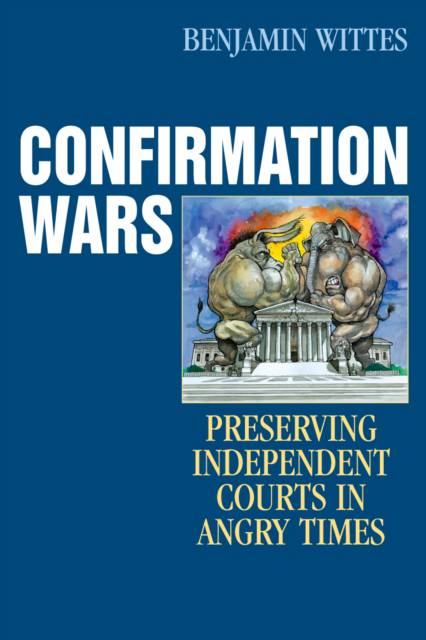
- Retrait gratuit dans votre magasin Club
- 7.000.000 titres dans notre catalogue
- Payer en toute sécurité
- Toujours un magasin près de chez vous
- Retrait gratuit dans votre magasin Club
- 7.000.000 titres dans notre catalogue
- Payer en toute sécurité
- Toujours un magasin près de chez vous
30,95 €
+ 61 points
Format
Description
In Confirmation Wars, Benjamin Wittes rejects the parodies offered by both the Right and Left of the decline of the process by which the United States Senate confirms_or rejects_the presidentOs nominees to the federal judiciary. He draws on original reporting and new historical research to provide a more accurate understanding of the current climate. He argues that the transformations the process has undergone should not be understood principally in partisan terms but as an institutional response on the part of the legislative branch to the growth of judicial power in the past five decades. While some change may have been inevitable, the increasing aggressiveness of the SenateOs conception of its function poses significant challenges for maintaining independent courts over the long term. The problem, Wittes argues, lies both in the extortionate quality of modern confirmations, in which senators make their votes contingent on reassurance by the nominees about substantive areas of concern, and in the possibility that the breakdown of the confirmation process represents a far larger effort by the Senate to rein in judicial power. Wittes offers several strategies for managing the political conflict surrounding nominations, strategies that seek to protect the independence of the courts and the prerogative of the president to choose judges while maximizing the utility to democratic government of a Senate that takes its advice and consent role seriously. Most importantly, Wittes argues for ending the relatively new practice of having nominees testify before the Senate Judiciary Committee. Published in cooperation with the Hoover Institution.
Spécifications
Parties prenantes
- Auteur(s) :
- Editeur:
Contenu
- Nombre de pages :
- 192
- Langue:
- Anglais
- Collection :
Caractéristiques
- EAN:
- 9780742551459
- Date de parution :
- 01-10-07
- Format:
- Livre broché
- Format numérique:
- Trade paperback (VS)
- Dimensions :
- 154 mm x 230 mm
- Poids :
- 276 g

Les avis
Nous publions uniquement les avis qui respectent les conditions requises. Consultez nos conditions pour les avis.






